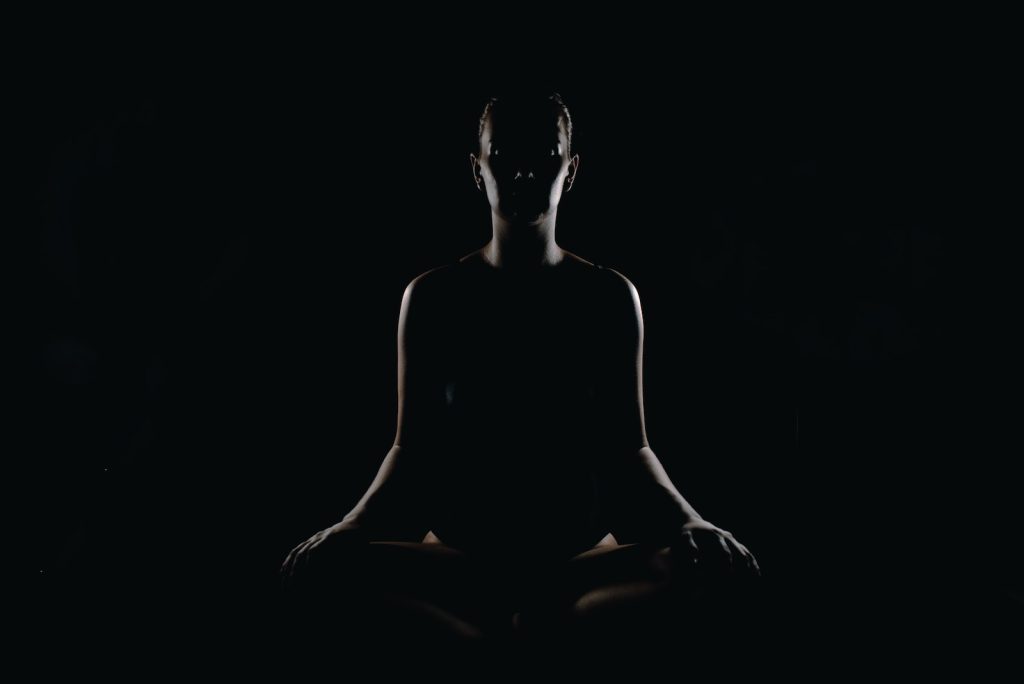Best Meditations for Postpartum Depression: A Comprehensive Guide
Postpartum depression is a common condition that affects many new mothers. It can cause feelings of sadness, anxiety, and hopelessness, as well as physical symptoms such as fatigue and difficulty sleeping. While medication and therapy can be effective treatments for postpartum depression, many women also find relief through meditation.

Meditation is a practice that involves focusing the mind on a particular object, thought, or activity to achieve a state of calm and relaxation. It has been shown to be an effective tool for reducing stress and anxiety, and can help new mothers cope with the challenges of postpartum depression. There are several different types of meditation that can be helpful for postpartum depression, including mindfulness meditation, loving-kindness meditation, and body scan meditation.
Mindfulness meditation involves paying attention to the present moment without judgment. This can help new mothers become more aware of their thoughts and feelings, and develop a greater sense of self-compassion. Loving-kindness meditation involves cultivating feelings of love, kindness, and compassion towards oneself and others. This can help new mothers feel more connected to their loved ones and develop a greater sense of empathy. Body scan meditation involves focusing on different parts of the body and noticing any sensations or feelings that arise. This can help new mothers become more aware of their physical sensations and develop a greater sense of body awareness.
Understanding Postpartum Depression

Postpartum depression is a type of depression that affects new mothers, usually within the first few weeks or months after giving birth. It is a serious condition that can have a significant impact on a mother’s mental and emotional well-being.
Symptoms and Diagnosis
Symptoms of postpartum depression can vary from person to person, but some common signs include feeling sad or hopeless, having trouble sleeping or sleeping too much, feeling anxious or irritable, and having difficulty bonding with the baby. Other symptoms may include changes in appetite, difficulty concentrating, and thoughts of harming oneself or the baby.
Diagnosis of postpartum depression is typically made by a healthcare provider who will ask about symptoms and perform a physical exam. They may also order blood tests to rule out other medical conditions that could be causing the symptoms.
Impact on New Mothers
Postpartum depression can have a significant impact on new mothers, affecting their ability to care for themselves and their baby. It can also have an impact on the entire family, causing stress and strain on relationships.
It is important for new mothers to seek treatment for postpartum depression as soon as possible. Treatment options may include therapy, medication, or a combination of both. In addition, there are several mindfulness and meditation techniques that may be helpful in managing symptoms of postpartum depression.
By understanding the symptoms and impact of postpartum depression, new mothers can take steps to seek treatment and manage their symptoms effectively.
Benefits of Meditation for Postpartum Depression
Meditation is a powerful tool that can help new mothers cope with postpartum depression. Scientific research has shown that meditation can have a positive impact on both the emotional and psychological well-being of new mothers.
Scientific Research Findings
Studies have found that meditation can help reduce symptoms of depression and anxiety in new mothers. A 2016 study published in the Journal of Clinical Psychology found that mindfulness-based cognitive therapy (MBCT) was effective in reducing symptoms of depression in postpartum women. Another study published in the Journal of Alternative and Complementary Medicine found that mindfulness meditation was effective in reducing symptoms of anxiety and depression in pregnant women.
Emotional and Psychological Benefits
In addition to the scientific research findings, there are also many emotional and psychological benefits to practicing meditation. Meditation can help new mothers feel more relaxed, calm, and centered. It can also help them feel more connected to their baby and their own emotions.
Meditation can also help new mothers develop a sense of mindfulness, which can help them stay present in the moment and avoid getting caught up in negative thoughts or feelings. This can be particularly helpful for new mothers who may be feeling overwhelmed or stressed.
Overall, meditation is a powerful tool that can help new mothers cope with postpartum depression. By helping new mothers feel more relaxed, calm, and centered, meditation can help them navigate the challenges of motherhood with greater ease and confidence.
Types of Meditation Techniques
Mindfulness Meditation
Mindfulness meditation involves focusing on the present moment without judgment. It is a popular meditation technique for managing postpartum depression. To practice mindfulness meditation, find a quiet place to sit or lie down and focus on your breath. Pay attention to the sensation of air moving in and out of your nose or mouth. If your mind wanders, bring your attention back to your breath. Mindfulness meditation can help you become more aware of your thoughts and emotions, which can be helpful in managing postpartum depression.
Guided Visualization
Guided visualization is a meditation technique that involves visualizing a peaceful scene or a positive outcome. It can be helpful in managing postpartum depression by reducing stress and anxiety. To practice guided visualization, find a quiet place to sit or lie down and close your eyes. Imagine a peaceful scene, such as a beach or a forest. Try to imagine the scene in as much detail as possible, using all of your senses. You can also visualize a positive outcome, such as a healthy and happy baby.
Deep Breathing Exercises
Deep breathing exercises are a simple and effective meditation technique for managing postpartum depression. They can help reduce stress and anxiety by slowing down your heart rate and calming your mind. To practice deep breathing exercises, find a quiet place to sit or lie down and take a deep breath in through your nose. Hold the breath for a few seconds, and then exhale slowly through your mouth. Repeat this process several times, focusing on your breath and letting go of any tension or stress.
How to Start Meditating
Creating a Routine
Establishing a consistent routine is essential to building a successful meditation practice. Choose a time of day that works best for you, whether it’s first thing in the morning or before bed. Start with just a few minutes each day and gradually increase the length of your sessions as you become more comfortable. Consistency is key, so try to meditate at the same time and place every day.
Finding a Quiet Space
Find a quiet, distraction-free space where you can sit comfortably and focus on your breath. This could be a spare room in your home, a corner of your bedroom, or even a peaceful outdoor spot. Make sure the space is tidy and free of clutter, and consider adding some calming elements like candles or plants to enhance your meditation experience.
Setting Realistic Goals
When starting a meditation practice, it’s important to set realistic goals that you can achieve. Don’t expect to be able to meditate for an hour straight right away. Start with just a few minutes each day, and gradually work your way up to longer sessions. Remember, the goal is not to clear your mind completely, but to simply observe your thoughts without judgment.
By following these tips, you can start meditating to help ease postpartum depression. Remember that meditation is a practice, and it may take some time to see the benefits. Be patient with yourself, and keep practicing consistently for the best results.
Incorporating Meditation into Postpartum Care
Postpartum depression is a common condition that affects many new mothers. One of the ways to manage postpartum depression is through meditation. Incorporating meditation into postpartum care can help new mothers cultivate a sense of inner peace, boost their mental resilience, and experience a renewed connection with themselves and their baby.
Professional Guidance
New mothers who are interested in incorporating meditation into their postpartum care can benefit from seeking professional guidance. A mental health professional who is experienced in working with postpartum depression can provide guidance on the best meditation techniques to use. They can also help new mothers develop a meditation practice that is tailored to their individual needs.
Support Groups and Communities
Support groups and communities can also be helpful for new mothers who are interested in incorporating meditation into their postpartum care. These groups provide a supportive environment where new mothers can connect with others who are going through similar experiences. They can also provide guidance and support on meditation techniques and help new mothers develop a consistent meditation practice.
Overall, incorporating meditation into postpartum care can be a helpful tool for managing postpartum depression. Seeking professional guidance and connecting with support groups and communities can help new mothers develop a consistent meditation practice that is tailored to their individual needs.
Additional Resources
Books and Online Courses
- The Mindful Way Through Depression by Mark Williams, John Teasdale, Zindel Segal, and Jon Kabat-Zinn is a highly recommended book for those struggling with depression, including postpartum depression. It offers practical mindfulness-based cognitive therapy techniques and exercises that can help alleviate symptoms of depression and anxiety.
- Mindful Motherhood by Cassandra Vieten is another great resource for new mothers dealing with postpartum depression. It offers guidance on how to incorporate mindfulness practices into daily life as a new mother, as well as practical tools for coping with the challenges of motherhood.
- The online course Mindful Birthing by Nancy Bardacke is designed specifically for expectant and new mothers. It teaches mindfulness-based techniques for managing stress, anxiety, and depression during pregnancy and postpartum.
Apps and Audio Guides
- Headspace is a popular meditation app that offers guided meditations for a variety of mental health concerns, including depression and anxiety. It also offers a specific meditation pack for new mothers.
- Calm is another meditation app that offers guided meditations for managing stress and anxiety, as well as sleep meditations for those struggling with insomnia. It also offers a specific meditation pack for new mothers.
- Mindful Mamas is an audio guide specifically designed for new mothers dealing with postpartum depression. It offers guided meditations and mindfulness exercises to help alleviate symptoms and promote healing.
Overall, these resources can be helpful for new mothers struggling with postpartum depression. It is important to remember that these resources should be used in conjunction with professional medical treatment and therapy.




